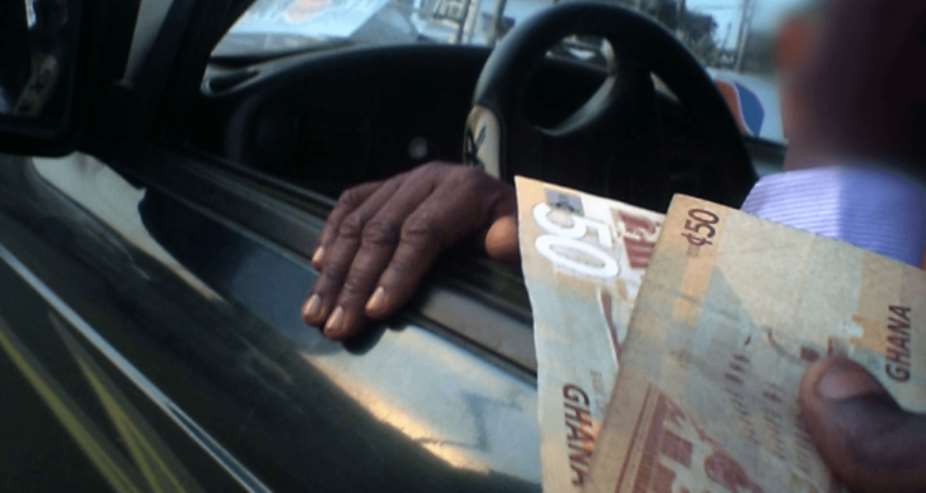This article assesses the perils of corruption and why the institutions, governments, NGOs, CSOs, and the citizens have proved, in recent times, weak in handling corruption activities in Ghana. Many governments have taken steps but those steps have not yielded any reforms in our fight against corruption in Ghana.
Over the last 30 years, anti-corruption programs have become a prominent part of international donors’ periodicals as they engage with incompetent and mismanaged governments. It is easy to see why reducing corruption has become such an important focus for philanthropists and non-governmental organisations (NGOs) likewise. On the one hand, corruption thwarts the quest for development and the diversion of resources means that donor programs are less likely to be successful, raising questions about the potency of the international aid sector itself. Relatedly, corruption increases the value of controlling the state to politicians, and hence heightens the risk that competition for power will turn violent.
Originally, anti-corruption efforts focused on inducing political elites to eschew corruption and consolidating checks and balances within the financial, audit, and broader political system. However, these strategies met with limited success because leaders faced meager incentives to moderate their behavior. According to Khan et al., 2019:3, ‘Conventional anti-corruption strategies have typically conveyed poor results’ in developing countries characterized by political settlements in which formal rules are weakly enforced and widely violated. This is because ‘they focus on improving the enforcement of a rule of law’ in contexts ‘where the distribution of organisational power allows a wide range of powerful individuals and organizations to violate rules’. The authors go on to say ‘a strategy that assumes that we can strengthen the enforcement of rules is likely to result in poor results in the short to medium term.
The failure of existing strategies has led to a refocusing of efforts on how greater pressure could be applied to political elites to incentivise them to amend their behaviour. One of the most popular methods to achieve this has been to try to shift popular attitudes through anti- corruption awareness-raising and other messaging, so that politicians need to reform in order to carry favour with voters. This often involves circulating anti-corruption adverts via newspapers, radio stations, television and, more recently, social media platforms. At the same time, posters warning of the dangers of corruption and encouraging citizens to report bribery and extortion are erected in public buildings and government institutions.
Despite the near-ubiquity of these strategies, very few academic studies have been conducted that systematically analyze their effectiveness. Since 2016 this has changed, with the publication of five studies that have examined the impact of anti-corruption messaging on the attitudes of citizens (Corbacho et al., 2016; Peiffer, 2017; Kobis, et al., 2019; Peiffer and Walton, 2019; Cheeseman and Peiffer 2020).
Worryingly, in the Ghanaian context, the observations are that anti-corruption messages do not work. Worse still, there is growing evidence that by training citizens to think about the latitude of corruption in their country, anti-corruption messages contribute to ‘corruption fatigue’. In other words, by making individuals feel that the problem is too great to be solved, anti-corruption messages can generate apathy rather than activism and hence contribute to the collective action problem that is systemic to corruption.
These are the reasons why, in Ghana, our fight against corruption is a ’fight-win-lose’ syndrome. Could it be that educating the public about the dangers of corruption to a state through all mediums is, in turn, sparking the corrupt activities in the state? Are the Anti-Corruptions institutions in Ghana contributing efficiently in the fight against corruption? Is corruption on the rise due to the citizen's beliefs and behaviors? Who is really to be blamed for all our misery in fighting corruption in Ghana?
Be a citizen and not a spectator!!!
Corruption corrupt Democracy and Development.





 Akufo-Addo commissions Phase II of Kaleo solar power plant
Akufo-Addo commissions Phase II of Kaleo solar power plant
 NDC panics over Bawumia’s visit to Pope Francis
NDC panics over Bawumia’s visit to Pope Francis
 EC blasts Mahama over “false” claims on recruitment of Returning Officers
EC blasts Mahama over “false” claims on recruitment of Returning Officers
 Lands Minister gives ultimatum to Future Global Resources to revamp Prestea/Bogo...
Lands Minister gives ultimatum to Future Global Resources to revamp Prestea/Bogo...
 Wa Naa appeals to Akufo-Addo to audit state lands in Wa
Wa Naa appeals to Akufo-Addo to audit state lands in Wa
 Prof Opoku-Agyemang misunderstood Bawumia’s ‘driver mate’ analogy – Miracles Abo...
Prof Opoku-Agyemang misunderstood Bawumia’s ‘driver mate’ analogy – Miracles Abo...
 EU confident Ghana will not sign Anti-LGBTQI Bill
EU confident Ghana will not sign Anti-LGBTQI Bill
 Suspend implementation of Planting for Food and Jobs for 2024 - Stakeholders
Suspend implementation of Planting for Food and Jobs for 2024 - Stakeholders
 Tema West Municipal Assembly gets Ghana's First Female Aircraft Marshaller as ne...
Tema West Municipal Assembly gets Ghana's First Female Aircraft Marshaller as ne...
 Dumsor is affecting us double, release timetable – Disability Federation to ECG
Dumsor is affecting us double, release timetable – Disability Federation to ECG
